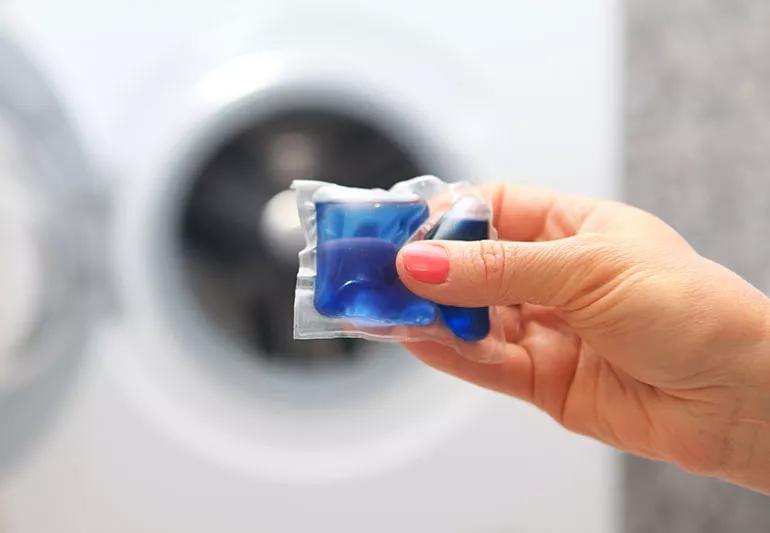Steps to prevent eczema in children

Image content: This image is available to view online.
View image online (https://assets.clevelandclinic.org/transform/bb710a98-eb40-4ea4-a2c5-5d22ce25b1b3/LaundryDetergentRash-903873120-770x533-1_jpg)
Closeup of a hand holding a laundry detergent pod with washer open in the background
Patches of red, scaly skin on your baby may be as unwelcome as a 3 a.m. diaper change, but they’re about as typical. Up to 30% of children under age 2 have atopic dermatitis (eczema), says pediatric dermatologist Joan Tamburro, DO.
Advertisement
Cleveland Clinic is a non-profit academic medical center. Advertising on our site helps support our mission. We do not endorse non-Cleveland Clinic products or services. Policy
Eczema is an inflammation of the skin that tends to run in families. It’s most common in those with a personal or family history of asthma, hay fever or other allergies.
Most children outgrow the condition, although flare-ups (flares) can recur throughout life. And dry, sensitive skin may always be a concern.
“Eczema can start as dry skin, but it’s more than dryness,” says Dr. Tamburro. “It’s red, scaly, extremely itchy skin lesions that can ooze at its most severe presentation. Sometimes scratching can cause the skin lesions to bleed and crust.”
Eczema can appear anywhere on the body, but location often changes with age. It can turn up on:
While dry skin can trigger flares, so can environmental factors, including:
But how can you stop eczema itching in your baby? In addition to avoiding triggers, good skin care is the best way to prevent the dry, itchy skin that can provoke eczema flares. Dr. Tamburro recommends parents help eczema in kids and toddlers by:
Advertisement
While it’s not curable, eczema can be controlled. Those who have had flares, even as infants, need to protect their skin for the rest of their lives.
“Some parents are aggressive at treating other health problems but disregard their child’s eczema, thinking skin problems are no big deal,” says Dr. Tamburro. “When children are itchy every day of their life, it is a big deal. Kids suffer with it. Eczema needs to be treated.”
Advertisement

Delivered every Tuesday!
Sign up for our Health Essentials emails for expert guidance on nutrition, fitness, sleep, skin care and more
It's a letter about the news!
Learn more about our editorial process.
Advertisement
Colloidal oatmeal, petroleum jelly and other around-the-home products can help provide needed relief
Your body’s natural response to stress can lead to painful skin irritation
From hyperactive immune response to disordered nerve connections, the itch is real
Eczema triggers are different for everyone, but there are some common ways to manage and prevent flare-ups
Hot or cold, your eczema can have flare-ups during multiple times of the year
Keep your showers short and lukewarm, and moisturize promptly after with a cream containing ceramides
Steroids, self-injections and medications can be game changers
Keeping their skin moisturized — and scratching at bay — is half the battle
Type 2 diabetes isn’t inevitable with these dietary changes
Applying a hot or cold compress can help with pain
Pump up your iron intake with foods like tuna, tofu and turkey